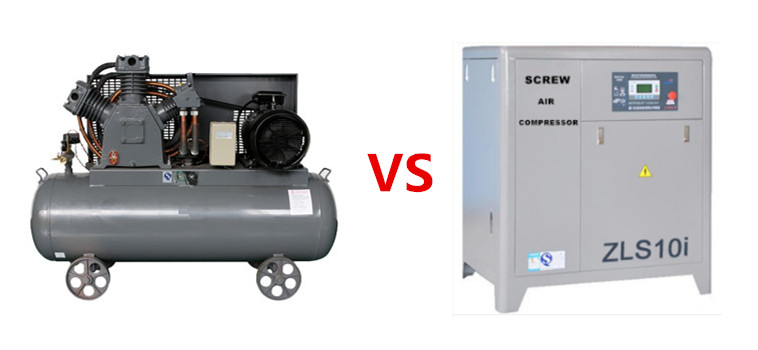Screw compressor or piston compressor ? Which is more efficient ?
Often, when it comes to choosing an air compressor for a service shop, there is a choice between types and sizes of compressors.
Do you choose a standard piston compressor or do you go with a more modern lubricated screw? But depending on the way you use your compressed air, and how the compressor is installed, the operating costs may be quite different for the two choices—and not in the way you might think.
Piston compressors use pistons to compress the air to the line pressure you desire. They are simple units, often mounted on a small receiver tank, and they usually run in start/stop mode on a mechanical pressure switch. You can certainly tell when they are running, because the pistons create a lot of noise. The cooling systems of these units are typically just fins across which a pulley mounted fan blows a stream of cooling air.
The air produced by these units is usually very hot and oily—difficult to clean and dry unless some sort of auxiliary cooling and filtering method is used. If one looks up the efficiency of these units, you may find that at full load they consume more power per unit output than a screw compressor . But these units are not designed to run continuously at full load, average loads of over about 60% of the compressor capacity with overheat and damage the internal components, mainly due to the poor cooling method.
Screw compressors, on the other hand, are more complex and expensive units and can often be mounted on the same sized storage tank. These units most often run in a different mode, load/unload which means they run continuously; alternately producing air at full load or running unloaded with zero compressed air output.
Screw compressors are much quieter than piston units and have very good cooling systems, similar to automotive radiators across which passes cooling air generated by a fan. These units are designed to run at full load and will produce much cooler and cleaner air, which can be sent directly to an air dryer to remove water vapor. These units usually consume less power per unit output at full load than piston units, making them more efficient in that condition.
Resource from pneumatictips
Post time: Mar-22-2018

